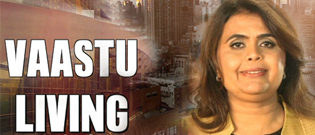The University of California at Davis will host its second annual South Asia Film Festival on May 3 and 4, presenting five films that span the South Asian experience across space and time.
Presented by the “South Asia without Borders” initiative from the Middle East/South Asia Studies program at UC Davis and 3rd i Films (who have been hosting 3rd i’s SF International South Asian Film Festival in the Bay Area for over 15 years), this year’s festival brings both classic fare and contemporary tales and features a host of talkback sessions with artists and scholars.
The festival kicks off on May 3, with a screening of the recently restored Bollywood classic “Amar Akbar Anthony,” a 1977 film from India, at the Buehler Alumni Center, 530 Alumni Lane on the UC Davis campus. A potent vision of social harmony, this campy, freewheeling comedy tells the story of three brothers separated at birth, and each one raised in a different faith — one Hindu, one Muslim and one Christian.
The film will be preceded by a reception and a presentation by the authors of “Amar Akbar Anthony: Bollywood, Brotherhood, and the Nation:” William Elison, assistant professor of religious studies at UC Santa Barbara; Christian Lee Novetzke, professor at the University of Washington’s Jackson School of International Studies; and Andy Rotman, professor of religion at Smith College.
On May 4, the festival moves to the International House with a screening of Indu Krishnan’s documentary “Good Guy Bad Guy,” a 2018 film from India.
With a lively backdrop of superheroes and comic books, Harleen Singh’s “Drawn Together: Comics, Diversity, and Stereotypes,” a 2017 film from the United States, gathers together three comic book artists (San Francisco-based Eileen Alden, North Carolina-based Keith Knight and New York-based Vishvajit Singh) to examine issues of representation and racism.
The festival’s final presentation begins with two short films that feature artists and communities in the Central Valley. Nicole Ranganath’s “Jutti Kasoori” (2018) explores the rich history of the Punjabi community in Northern California through the eyes of women, while Steve Arounsack’s “Halfway Home” (2018) explores the vibrant arts scene in the Asian-American community of the region.
The events are free and open to the public.



















